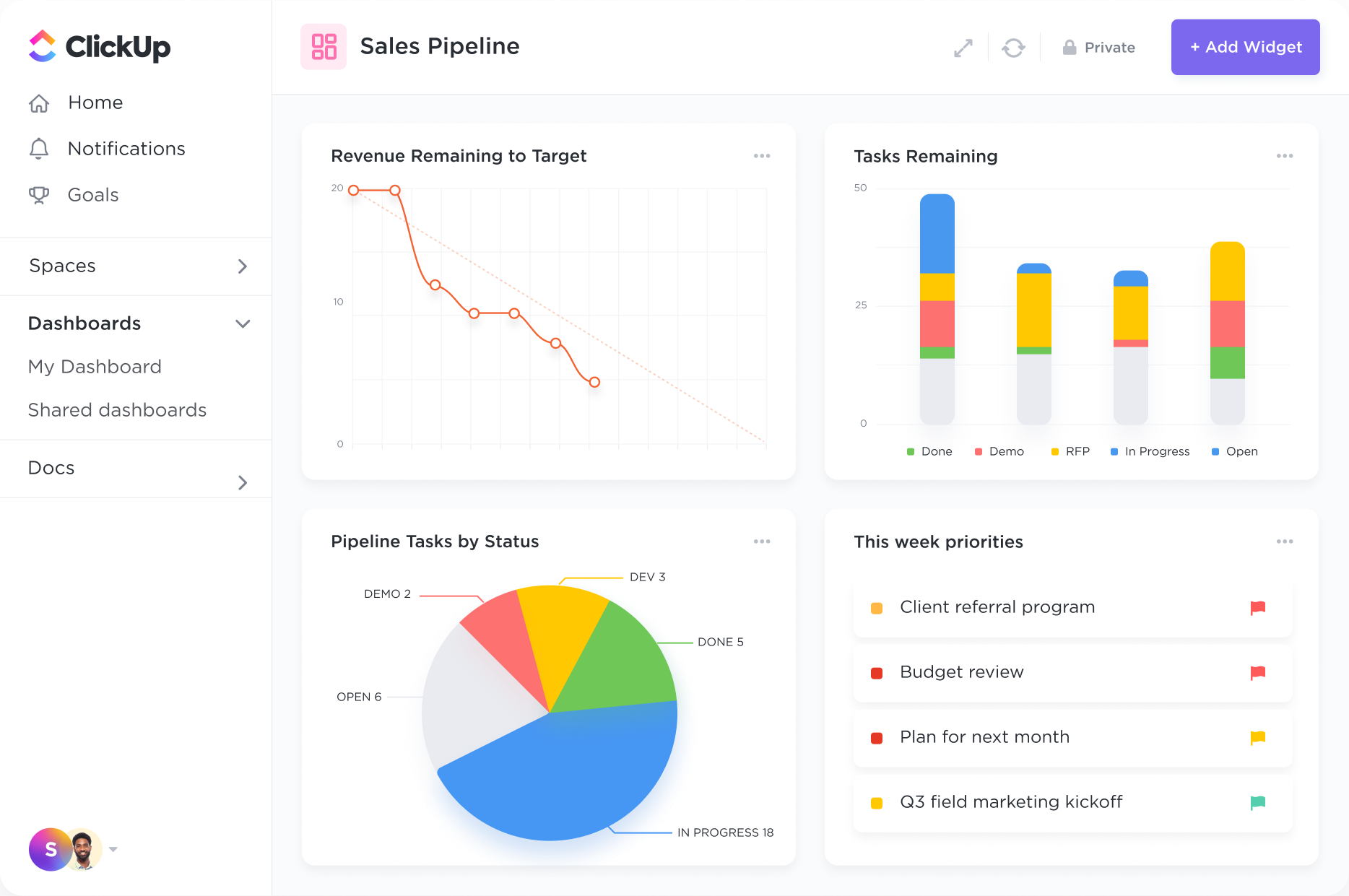Analyze data for customer insights.
Create high-level views to monitor customer lifetime value, average deal sizes, and more. ClickUp's 50+ Dashboard widgets make it easy to visualize all of your customer data in one place.

Supercharge your real estate development projects with ClickUp's customizable CRM system, specially designed for real estate developers. Streamline your workflow, manage leads efficiently, and track your projects seamlessly all in one place. Elevate your business operations and drive success with ClickUp's powerful CRM software.
Free forever.
No credit card.
Trusted by the world’s leading businesses
Create high-level views to monitor customer lifetime value, average deal sizes, and more. ClickUp's 50+ Dashboard widgets make it easy to visualize all of your customer data in one place.

Eliminate silos and fast-track communication by integrating your emails with ClickUp. Collaborate on deals, send project updates to clients, and onboard customers with a single email hub.

Key features of CRM software for real estate developers include lead management, automated follow-ups, property tracking, sales forecasting, and customer communications.
CRM software can help real estate developers manage and track leads effectively by centralizing lead information, automating lead nurturing processes, providing insights into lead behavior, and enabling timely follow-ups to increase conversion rates.
Yes, there are CRM software solutions tailored for real estate developers that integrate with popular listing platforms and websites. These specialized CRM systems help manage property listings, leads, client communications, and transactions efficiently within a single platform.